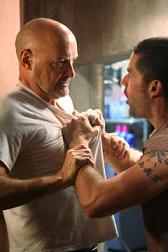“Pancakes make people happy,” goes the slogan of the Royal Canadian Pancake House. But those delectable breakfast treats do much more than that on Shrove Tuesday–they provide the thrill of victory and the agony of defeat. Traditionally, Christian households were supposed to use up the lard and dairy in their homes in preparation for the austere Lenten fasting period; hence the name “Fat Tuesday” (“Mardi Gras” in French). On Shrove Tuesday 1445, a curious thing happened in the town of Olney, England: The first pancake race was run.
There are several stories explaining the emergence of the race, but the most popular one holds that a local housewife, upon hearing the church bells ring, ran off to the service with frying pan and pancake still in hand.
However it got started, the contestants in Olney’s pancake race (and other such contests) must flip their pancakes in their frying pans before running the 415-yard course, then give them another toss at the finish line to prove the pancake is still present. Only women 18 or over may enter and they must wear “traditional” housewife’s garb–a skirt, an apron, and some form of head covering.
In 1950, it became a transatlantic event, when the town of Liberal, Kansas, challenged the flapjack flippers across the pond to see which country rules the sport of pancake racing. Times are compared via a long-distance phone call and ambassadors from the opposing country are often present.
Andrea Rawlings, a 32-year-old Olney saddler who came in second in 2005, brought the bacon, so to speak, back to Britain this year with a time of 63.76 seconds.


